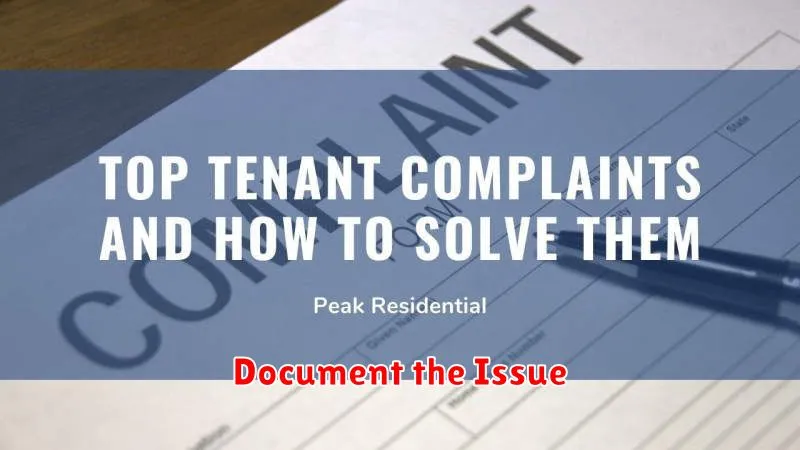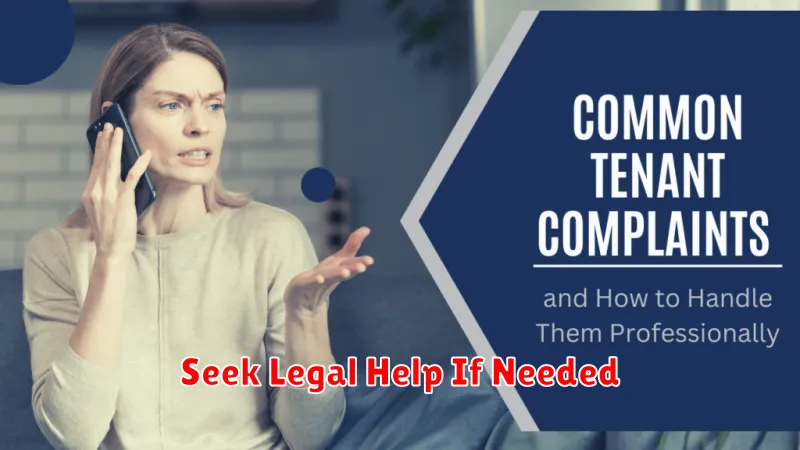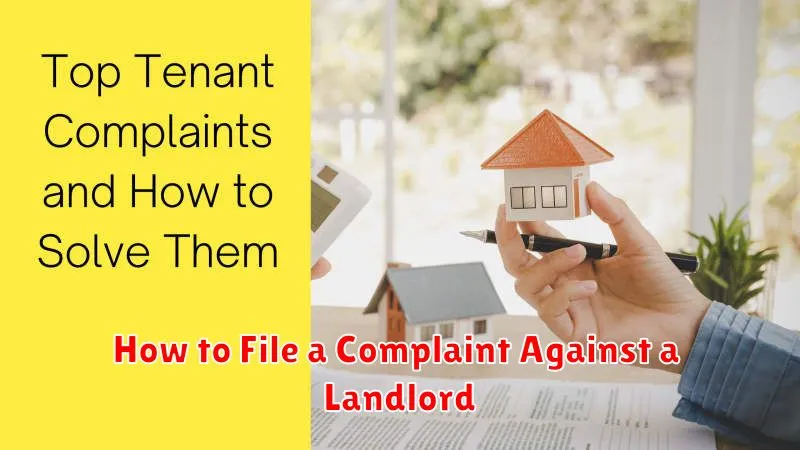Dealing with a difficult landlord can be a stressful experience. Whether you’re facing illegal rent increases, necessary repairs being ignored, breach of contract, harassment, or other landlord-tenant disputes, knowing your rights and how to effectively file a complaint is crucial. This guide provides a comprehensive overview of how to file a complaint against a landlord, outlining the steps you can take to resolve your housing issues and protect your tenant rights. We’ll cover everything from identifying the appropriate local housing authority to understanding retaliation laws, ensuring you are equipped to navigate the complexities of landlord-tenant law.
Taking action against a negligent landlord can feel daunting, but it is often necessary to secure safe and habitable housing. This article will provide clear and actionable steps on how to document violations, gather evidence, and formally file a complaint. We will explore various methods of addressing grievances, including mediation, contacting tenant organizations, and understanding the process of taking legal action. From security deposit disputes to lease violations, this resource offers essential information for tenants seeking to resolve landlord-tenant conflicts effectively and efficiently.
Know Your Rights as a Tenant
Before filing a complaint, it’s crucial to understand your rights as a tenant. These rights vary by jurisdiction, so researching your specific local and state laws is essential. Generally, tenants have a right to a habitable dwelling. This includes access to essential services like heat, hot water, and working plumbing.
You also have a right to a safe and quiet environment, free from unreasonable disturbances. Landlords typically have a legal obligation to address issues that affect habitability promptly. Additionally, landlords must generally provide proper notice before entering your unit, except in emergencies.
Retaliation by landlords for filing a complaint is illegal. If you experience any form of retaliation, such as a rent increase or eviction notice, following a complaint, document it thoroughly and report it to the appropriate authorities.
Familiarize yourself with your lease agreement, as it outlines specific terms and conditions of your tenancy. However, remember that your lease cannot supersede local and state laws that protect tenant rights. Knowing your rights is the first step towards effectively addressing any landlord-tenant disputes.
Document the Issue

Thoroughly documenting the issue is crucial for a successful complaint. This documentation serves as evidence and supports your claim.
Begin by writing a detailed description of the problem. Include the date the issue began, the specific location within the property, and any attempts you made to notify the landlord. Be specific and factual, avoiding emotional language.
Gather supporting evidence. This could include:
- Photographs
- Videos
- Emails or letters between you and the landlord
- Copies of your lease agreement highlighting relevant clauses
- Testimony from witnesses, if applicable
Organize all documentation chronologically. This will make it easier to present a clear timeline of events to the relevant authorities.
Try Resolving Directly
Before escalating the situation, it’s often beneficial to attempt to resolve the issue directly with your landlord. Direct communication can be a quick and cost-effective way to address concerns.
Document your complaint in writing, clearly outlining the problem and the desired resolution. Keep a copy for your records. This documentation can be valuable if further action becomes necessary. Politely and respectfully present your complaint to your landlord, allowing reasonable time for a response and/or action.
Maintain a record of all communication, including dates, times, and the substance of conversations or correspondence. This detailed record can be extremely helpful if you need to escalate the complaint to a higher authority.
Contact Local Housing Authorities
If your landlord is violating local housing codes or tenant rights laws, contacting your local housing authority is a crucial step. These authorities are responsible for enforcing these regulations and can provide valuable assistance in resolving your complaint. They can investigate your claims, mediate between you and your landlord, and even take legal action against your landlord if necessary.
Locating your local housing authority is typically straightforward. A quick online search using your city or county name along with “housing authority” should provide the necessary contact information. You can also often find this information through your city or county government’s website.
Be prepared to provide details about your complaint when you contact the housing authority. This information should include your landlord’s name and contact information, the address of the property, a clear description of the violation, and any supporting documentation you have, such as photos, videos, or copies of your lease agreement. The more information you can provide, the more effectively the housing authority can investigate your complaint.
Seek Legal Help If Needed

While many landlord-tenant disputes can be resolved through communication and negotiation, some situations may require legal intervention. If your attempts to resolve the issue directly with your landlord have been unsuccessful, seeking legal counsel is a viable option.
An attorney specializing in landlord-tenant law can advise you on your rights and legal options. They can help you understand the complexities of your local housing laws and determine the best course of action based on your specific circumstances. This may include drafting legal documents, representing you in court, or negotiating a settlement with your landlord.
Several resources can help you find legal assistance. You may contact your local bar association for referrals to qualified attorneys in your area. Legal aid societies can provide free or low-cost legal services to those who qualify. Additionally, some tenant rights organizations offer legal guidance and support to tenants facing disputes with their landlords.
Consulting with a legal professional can provide you with clarity and the necessary tools to navigate complex legal situations related to your tenancy. It’s important to remember that laws vary by jurisdiction, so seeking localized legal counsel is essential.

